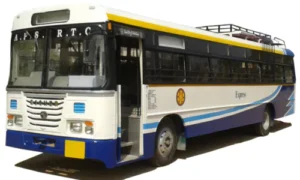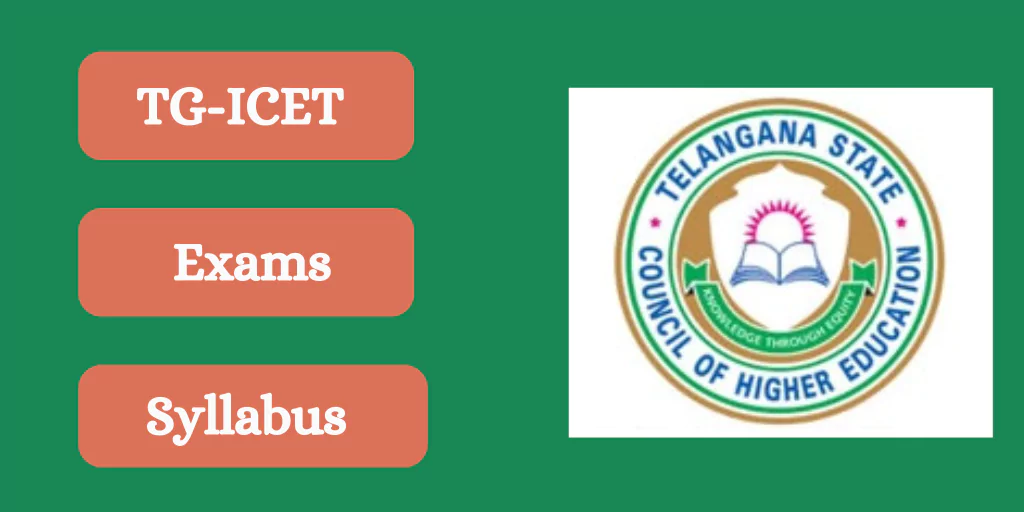Recently updated on April 15th, 2025 at 09:56 am
The syllabus for the APSRTC Deputy Superintendent (Material) position normally covers technical, managerial, and analytical responsibilities. While the specific syllabus for 2024 is not explicitly defined, here is an overview based on comparable occupations and recruitment patterns:
Core Subjects: APSRTC Deputy Superintendent
1. Technical knowledge:
- Basics of Automotive and Mechanical Engineering.
- Store and material management principles.
- Supply chain management.
- Inventory Control and Warehouse Management.
2. General Awareness:
- Understanding current issues at the national and state levels, particularly in Andhra Pradesh.
- General knowledge of the transport and logistics sectors.
3. Quantitative Aptitude and Reasoning:
- Logical Reasoning.
- Basic Arithmetic and Numerical Analysis.
- Data Interpretation.
4. English and Communication Skills:
- Grammar and vocabulary.
- Report writing and letter drafting.
- Comprehension skills.
5. Management principles:
- If appropriate, include leadership and organizational behaviour.
- Business Environment and Ethics.
6. Computer Knowledge:
- Understanding of MS Office and ERP systems.
- Utilization of Technology in Material Management.
For a detailed syllabus, you should check the APSRTC official website or receive notifications directly from the organization. Furthermore, referring to prior years’ question papers and test trends can be useful in preparing.
Detailed Syllabus Components: APSRTC Deputy Superintendent

1. Technical knowledge
- Basics of automobile and mechanical engineering, including engines, gearboxes, and vehicle dynamics.
- Maintenance and repair of vehicles.
2. Store and Inventory Management:
- Information on inventory control, just-in-time systems, and material handling.
- Warehousing, logistics, and transportation systems.
3. Procurement and Supply Chain:
- Exploring vendor management and procurement methodologies.
- Supply chain optimization and enterprise resource planning solutions.
General Awareness
1. Current Affairs:
- Discuss recent advances in transportation and public sector organizations.
- Important projects and policies in Andhra Pradesh.
2. General Knowledge:
- Understanding Andhra Pradesh’s geography and economy.
- Milestones in Indian transportation
Quantitative aptitude and reasoning:
1. Quantitative Aptitude:
- Arithmetic skills include ratios, percentages, profit and loss, and simple/compound interest.
- Basic concepts in algebra and geometry.
- Data analysis: graphs, pie charts, and tables.
2. Reasoning and Logical Thinking:
- Verbal reasoning: This includes analogies, syllogisms, and coding/decoding.
- Nonverbal reasoning: it involves patterns and problems.
- Decision-making and problem-solving scenarios.
3. English Language Skills
- Grammar: Grammar includes sentence correction, prepositions, conjunctions, and tenses.
- Vocabulary: Synonyms, antonyms, and idioms are all examples of vocabulary.
- Comprehension: Reading passages and responding to related questions are examples of comprehension skills.
- Communication: Communication involves writing official letters, reports, and memoranda.
General and managerial knowledge: APSRTC Deputy Superintendent

1. Management Principles:
- An overview of company management, leadership styles, and organizational behaviour.
- Material management and business ethics.
2. Public Administration Basics:
- Understanding the structure and operation of government transportation networks.
- Roles and responsibilities in public sector enterprises (PSUs).
3. Computer Knowledge:
- Proficiency in MS Office includes basic knowledge of Word, Excel, and PowerPoint for reporting and analysis.
- Knowledge of inventory management systems, such as SAP or Tally.
General IT awareness includes cybersecurity fundamentals and the usage of digital platforms in operations.
Preparation Tips: APSRTC Deputy Superintendent
1. Technical knowledge:
- For mechanical engineering basics, consult RK Rajput’s book and Sunil Sharma’s book on automotive engineering.
- Read material management books by A. K. Chitale and R. C. Gupta.
2. Current Events and General Awareness:
- Stay up to date on transportation news by reading newspapers like The Hindu or The Indian Express.
- Refer to monthly compilations from Adda247 or Testbook.
3. Quantitative and reasoning:
- Work through books such as RS Aggarwal’s Quantitative Aptitude and Verbal and Nonverbal Reasoning.
- Use the mock test series available on competitive exam platforms.
4. English skills:
- Use grammar books such as Wren and Martin.
- Practice comprehension using exam preparation resources.
5. Past Papers and Mock Tests:
- Examine previous APSRTC exams to understand the pattern and sorts of questions.
- Platforms such as Gradeup or Testbook provide sample examinations targeted to Andhra Pradesh exams.
Conclusion
To summarize, studying for the APSRTC Deputy Superintendent (Material) exam involves an organized approach that focuses on technical knowledge, general awareness, numeric ability, reasoning, English, and computers.
Prepare for the exam with a comprehensive course that includes technical knowledge, general awareness, aptitude, reasoning, and managerial skills. Get advice, tools, and a systematic strategy to help you pass the exam.”







Binance账户创建
November 21, 2024Thanks for sharing. I read many of your blog posts, cool, your blog is very good. https://www.binance.info/bn/register?ref=WTOZ531Y
ab-resurs
November 21, 2024Тяговые аккумуляторные https://ab-resurs.ru батареи для складской техники: погрузчики, ричтраки, электротележки, штабелеры. Новые АКБ с гарантией, помощь в подборе, совместимость с популярными моделями, доставка и сервисное сопровождение.
faamru
November 21, 2024Продажа тяговых АКБ https://faamru.com для складской техники любого типа: вилочные погрузчики, ричтраки, электрические тележки и штабелеры. Качественные аккумуляторные батареи, долгий срок службы, гарантия и профессиональный подбор.
uakino-642
November 21, 2024дивитися фільми онлайн 2025 прем’єри кіно 2025 онлайн
Georgegus
November 21, 2024Топовый маркет https://akkauntistore.com встречает FB-специалистов в нашем каталоге цифровых товаров для FB. Если вам нужно купить аккаунт Facebook для рекламы, чаще всего важен не «просто доступе», а в трасте и лимитах: уверенный спенд, наличие пройденного ЗРД в Ads Manager и прогретые FanPage. Мы подготовили короткую карту выбора, чтобы вы без лишних вопросов понимали что подойдет под ваши офферы до оплаты.Коротко: с чего начать: начните с разделы Фарм (King), а для масштабирования — переходите напрямую в профильные позиции: BM 250$. Ключевая идея: покупка — это только вход. Дальше решает подход к запуску: какой прокси используется, как вы передаете лички без триггеров, как проходите чеки и как масштабируете адсеты. Ключевое преимущество данной площадки — это наличие приватной образовательной секции, в которой опубликованы свежие гайды по проходу ЗРД. Здесь доступны акки Meta под разные задачи: от дешевых авторегов до трастовыми БМами с высоким лимитом. Переходите в наше комьюнити, смотрите обучающие кейсы по заливу, наводите порядок и улучшайте конверт с помощью нашего сервиса без задержек. Важно: используйте активы законно и всегда с учетом правил Meta.
i-tec
November 21, 2024Мультимедийный интегратор здесь интеграция мультимедийных систем под ключ для офисов и объектов. Проектирование, поставка, монтаж и настройка аудио-видео, видеостен, LED, переговорных и конференц-залов. Гарантия и сервис.
Reva Mates
November 21, 2024I am so happy to read this. This is the kind of manual that needs to be given and not the accidental misinformation that’s at the other blogs. Appreciate your sharing this greatest doc.